Ah, dandruff - the uninvited guest that seems to love crashing the party on our scalps. We've all been there, wearing that perfect black outfit, only to have our shoulders decorated with a dusting of snowy flakes. In this article, we'll tackle the not-so-mysterious case of dandruff, revealing the short answer to banishing those pesky flakes: maintaining a healthy scalp.
But wait, there's more! Stick around, and we'll dive deeper into the root (pun intended) of the problem, exploring the causes of dandruff and debunking common myths. Plus, we'll share some tried-and-true remedies and tips for keeping your scalp flake-free and ready for any wardrobe choice. So, let's shake off those flakes and get ready to dive headfirst into the world of dandruff!
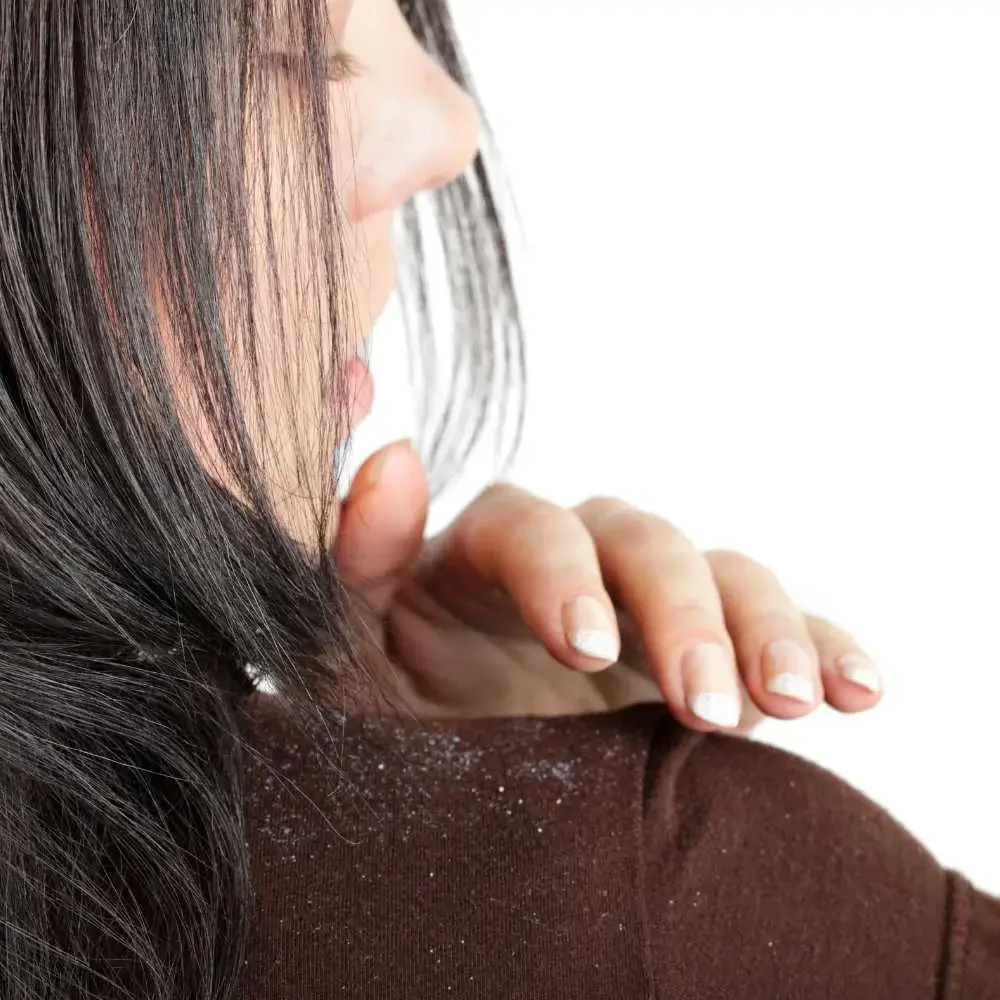
What is Dandruff?
Dandruff is that pesky, widespread epidemic, determined to make an appearance in the lives of a jaw-dropping 50% of our planet's population at some point or another. This uninvited guest loves to leave its mark through the "gift" of dead skin cells on your scalp, parading around as unsightly white flakes. But wait, there's more! In some cases, dandruff decides it needs a little extra pizzazz and brings along its partners in crime, itchiness, and redness, to amp up the discomfort. So, not only does it make a grand entrance, but it also ensures it won't be easily forgotten! Oh, dandruff, you sneaky little rascal!
What Causes Dandruff?
There are a few different things that can cause dandruff, including:
- Not shampooing often enough: If you don't shampoo your hair regularly, dead skin cells can accumulate on the scalp, leading to dandruff.
- A Yeast Overgrowth: A type of yeast called malassezia can contribute to dandruff. This yeast feeds on oils secreted by the skin, and an overgrowth can irritate the scalp and lead to flaking.
- Dry Skin: Dry skin is another common cause of dandruff. When skin is dry, it doesn't shed dead skin cells as efficiently as it should, leading to a buildup of flakes on the scalp.
- Eczema: Eczema is a chronic inflammatory condition that can sometimes cause dandruff.
- Psoriasis: Psoriasis is another inflammatory condition that may contribute to dandruff. In severe cases, psoriasis can even cause thickened patches of dead skin cells to form on the scalp.
- Contact Dermatitis: Contact dermatitis occurs when something irritating comes into contact with the skin, causing redness, itchiness, and flaking. Common culprits include detergents, soaps, hair products, and even certain fabrics.
- seborrheic Dermatitis: Seborrheic dermatitis is a chronic inflammation of the skin that can sometimes lead to dandruff. This condition often affects people who have oily skin or who suffer from conditions like acne or psoriasis.
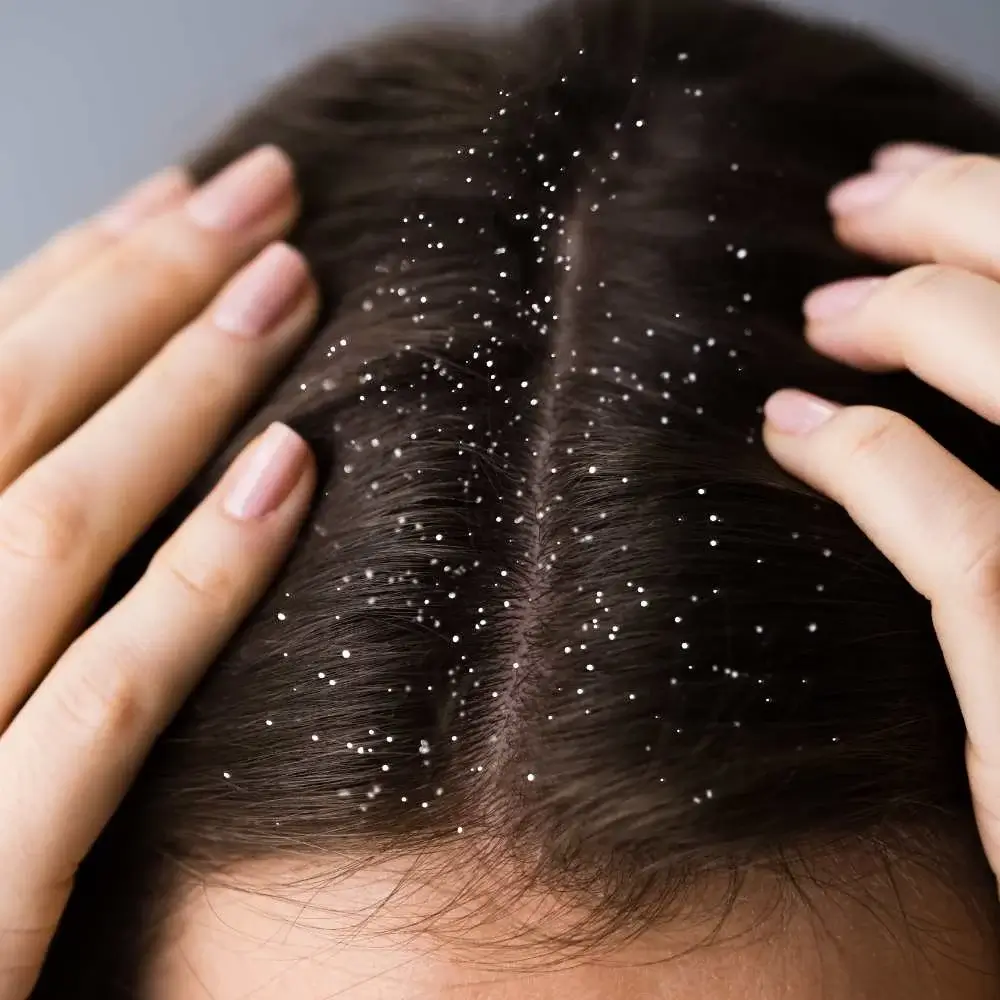
Debunking Common Myths About Dandruff
Dandruff, the uninvited guest that loves to make an appearance at the most inopportune moments, often leaves us scratching our heads (literally) and wondering what we did to deserve such a flaky fate.
But before we dive into the world of dandruff, let's first debunk some common myths surrounding this pesky problem.
Myth 1: Dandruff is caused by poor hygiene
Contrary to popular belief, dandruff is not a result of poor hygiene or infrequent hair washing. In fact, dandruff is caused by a variety of factors such as an overgrowth of yeast, dry skin, or even sensitivity to certain hair care products. So, while keeping your hair clean and well-groomed is essential for overall scalp health, it doesn't guarantee a dandruff-free existence.
Myth 2: Dandruff only affects those with dry scalps
While it's true that dry skin can contribute to dandruff, it's not the sole culprit. Those with oily scalps can also fall victim to dandruff, as an excess of oil production can lead to the growth of the yeast Malassezia, which is a common cause of dandruff.
Myth 3: Frequent hair washing worsens dandruff
Washing your hair too often can indeed strip your scalp of its natural oils, potentially leading to dryness and irritation. However, if you suffer from dandruff caused by an oily scalp, regular shampooing may actually help control the problem by removing excess oil and reducing the growth of yeast.
Myth 4: Dandruff is contagious
Rest assured, dandruff is not something you can "catch" from someone else. It is a condition that occurs due to individual factors like genetics, hormones, and even stress levels.
Myth 5: Using anti-dandruff shampoo every day is harmful
Anti-dandruff shampoos are specifically formulated to address the underlying causes of dandruff. While some may contain harsher ingredients, using them as directed should not cause any harm to your hair or scalp. In fact, consistent use of anti-dandruff shampoo can help keep flakes at bay and maintain a healthy scalp.
By debunking these common myths about dandruff, we can better understand the true nature of this flaky foe and take the necessary steps to keep our scalps healthy and flake-free.
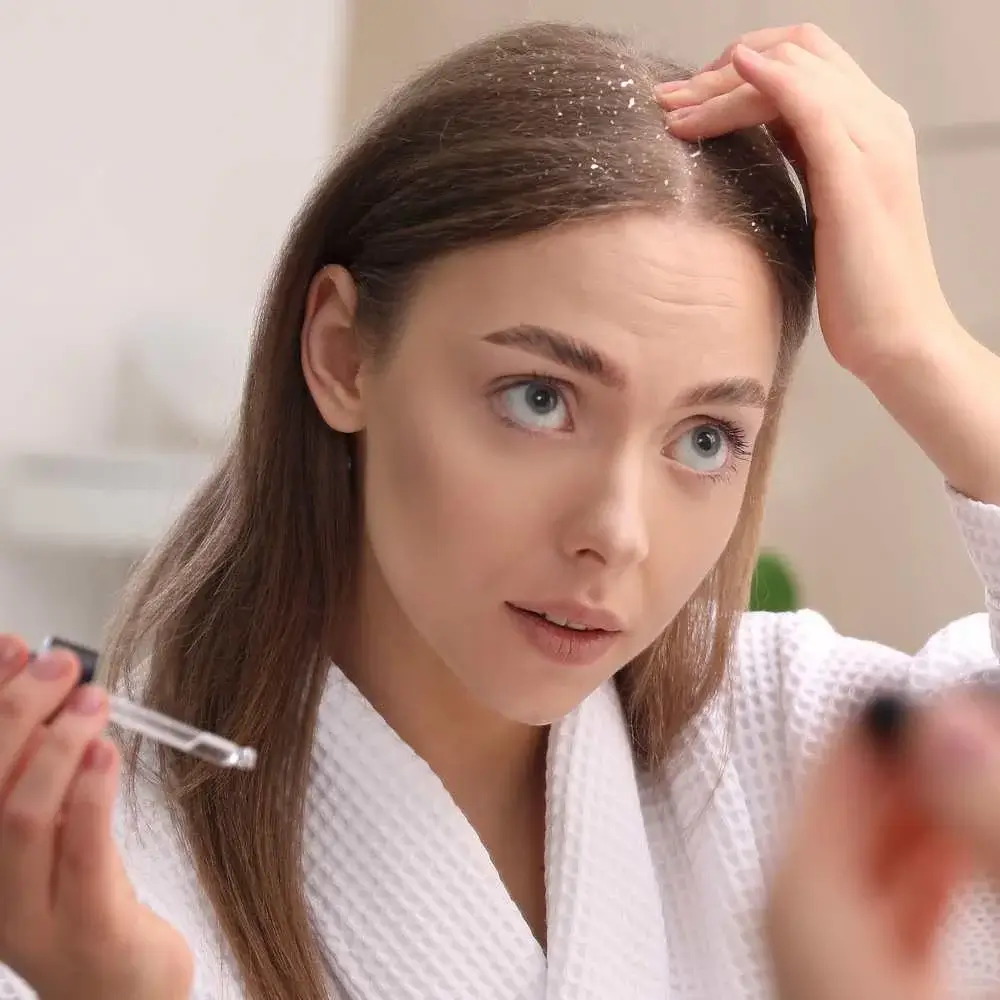
Tips for preventing dandruff recurrence
Dandruff, that pesky party crasher that loves to make a grand entrance on our scalps, can be quite stubborn and persistent.
Thankfully, with a little know-how and some consistent effort, it is possible to keep dandruff at bay and enjoy a flake-free existence.
Here are some tried-and-true tips for preventing dandruff recurrence.
Tip 1: Find the right shampoo for your scalp
Not all dandruff shampoos are created equal, and finding the one that works best for your specific needs can make all the difference.
Experiment with different anti-dandruff shampoos containing active ingredients like zinc pyrithione, selenium sulfide, or ketoconazole, and pay attention to how your scalp responds.
Tip 2: Be consistent with your hair care routine
Once you find a shampoo that works for you, stick to a consistent hair washing schedule. For some, this might mean daily washes, while others may only need to lather up every few days. The key is to be consistent and adjust as needed based on your scalp's response.
Tip 3: Don't forget to condition
Conditioning your hair might seem unrelated to dandruff prevention, but a well-moisturized scalp is less likely to flake. Opt for a lightweight conditioner that won't weigh down your hair or cause excess oil buildup.
Tip 4: Watch out for product buildup
Hair styling products like gels, mousses, and hairsprays can contribute to dandruff by causing product buildup on the scalp. To avoid this issue, use these products sparingly and make sure to cleanse your scalp thoroughly when washing your hair.
Tip 5: Manage stress levels
Believe it or not, stress can play a role in dandruff flare-ups. Finding healthy ways to manage stress, such as exercise, meditation, or engaging in hobbies, can help keep dandruff in check.
Tip 6: Maintain a healthy diet
A well-balanced diet that includes essential nutrients like zinc, B vitamins, and healthy fats can support overall scalp health and make it less susceptible to dandruff.
By incorporating these tips into your daily routine, you'll be well on your way to winning the battle against dandruff and enjoying a flake-free, healthy scalp.
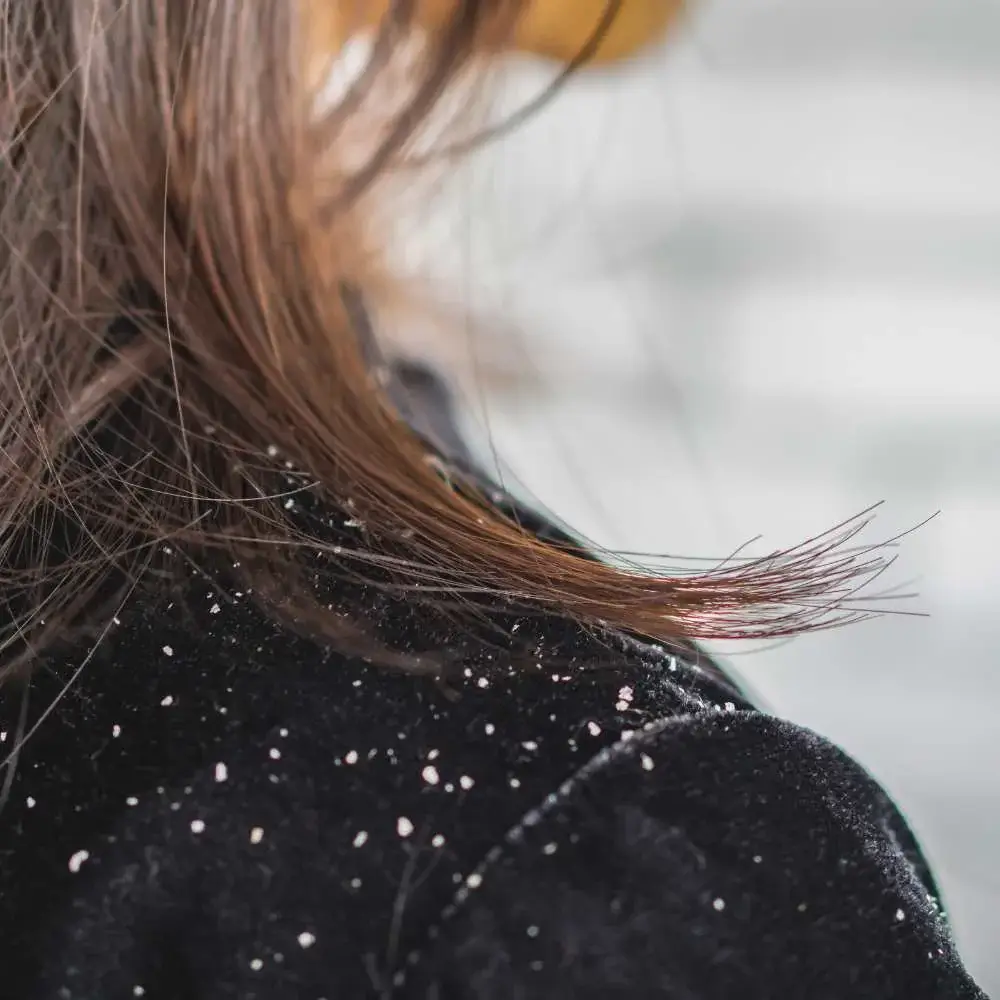
Maintaining a Healthy Scalp
Dandruff, the uninvited guest that loves to make a grand entrance on our scalps, can be quite an annoyance. But the good news is that by focusing on maintaining a healthy scalp, you can not only keep dandruff at bay but also enjoy beautiful, lustrous hair. Here are some tips for ensuring a healthy scalp and gorgeous locks.
Be gentle with your scalp
When washing your hair, avoid using your nails or scrubbing too aggressively, as this can cause irritation and worsen dandruff. Instead, use the pads of your fingers to gently massage your scalp, which can help stimulate blood flow and promote overall scalp health.
Keep the heat in check
Frequent use of hot styling tools like hairdryers, curling irons, and straighteners can damage your hair and contribute to a dry, irritated scalp. Try to limit your use of these tools, and when you do use them, opt for lower heat settings to minimize damage.
Don't skip the sunscreen
Your scalp, just like the rest of your skin, is susceptible to sun damage. Protect your scalp from harmful UV rays by wearing a hat when outdoors or using a hair care product with added SPF.
Stay hydrated
Proper hydration is essential for overall health, including the health of your scalp and hair. Make sure to drink plenty of water throughout the day to keep your body (and your scalp) well-hydrated.
Give your scalp some TLC
Treat your scalp to regular pampering sessions with nourishing treatments like hair masks, scalp massages, or even DIY remedies like coconut oil or aloe vera gel. These treatments can help soothe the scalp, restore moisture, and encourage healthy hair growth.
By following these tips and making scalp health a priority, you'll not only keep dandruff at bay but also enjoy beautiful, healthy hair that turns heads for all the right reasons.
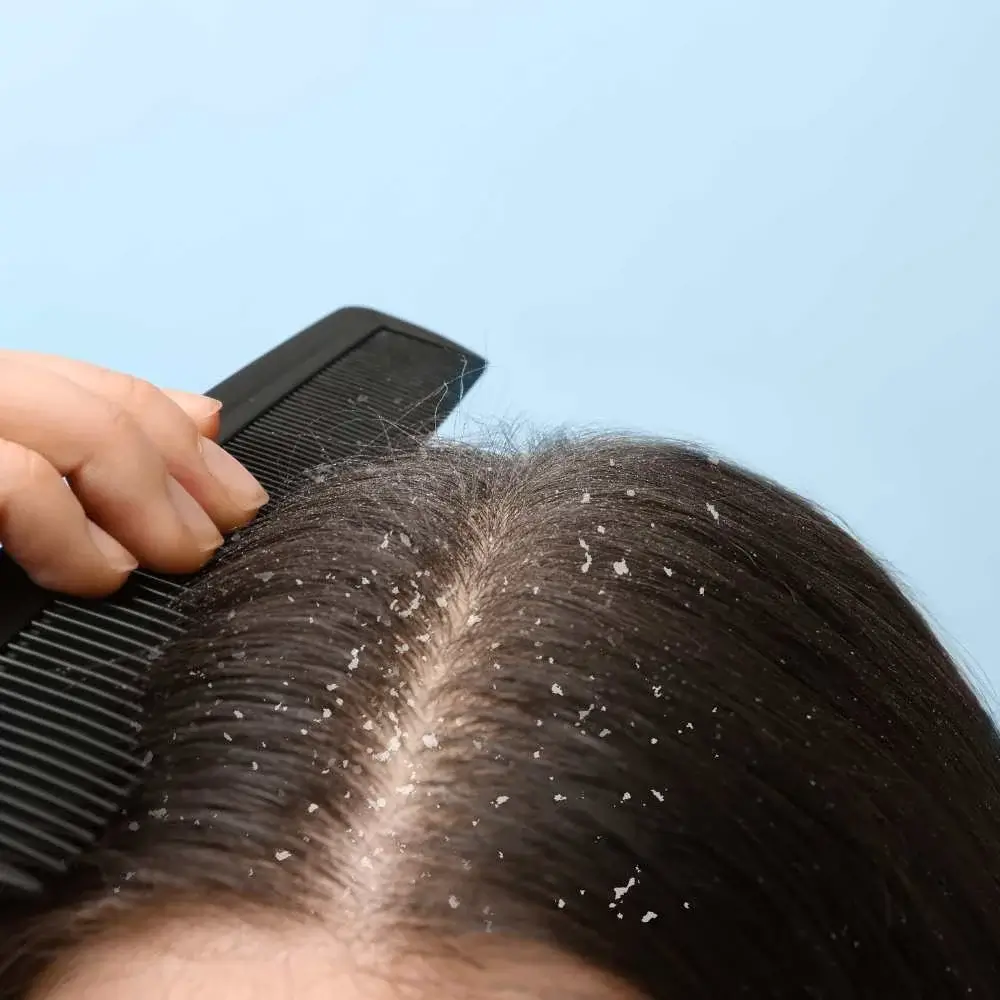
Home Remedies for Dandruff
Dandruff, the uninvited and persistent guest on our scalps, can be quite a challenge to deal with. Fortunately, there are several home remedies that can help you manage dandruff effectively. Let's explore some of these natural solutions for flake-free hair.
Apple cider vinegar
A popular home remedy for dandruff is apple cider vinegar, which boasts antifungal properties that can help combat yeast overgrowth. Dilute one part apple cider vinegar with three parts water and apply the mixture to your scalp. Let it sit for a few minutes before rinsing thoroughly.
Tea tree oil
Tea tree oil has long been used for its antifungal and antibacterial properties, making it an excellent option for tackling dandruff. Add a few drops of tea tree oil to your regular shampoo or dilute it with a carrier oil and massage it into your scalp.
Coconut oil
Known for its moisturizing and antifungal benefits, coconut oil can help soothe a dry, irritated scalp and reduce dandruff. Massage a small amount of coconut oil into your scalp, leave it on for about 20 minutes, and then wash your hair as usual.
Aloe vera gel
Aloe vera gel can provide relief from itchiness and irritation associated with dandruff. Apply pure aloe vera gel directly to your scalp, let it sit for about 30 minutes, and then rinse it off with a gentle shampoo.
Baking soda
Baking soda can help exfoliate dead skin cells and control oil production on the scalp, making it a useful home remedy for dandruff. Mix a small amount of baking soda with water to create a paste and gently massage it onto your scalp. Rinse thoroughly after a few minutes.
By incorporating these home remedies into your hair care routine, you can effectively combat dandruff and enjoy a healthier, flake-free scalp. Remember, it's essential to be consistent with these remedies and give them time to work, as results may vary from person to person.
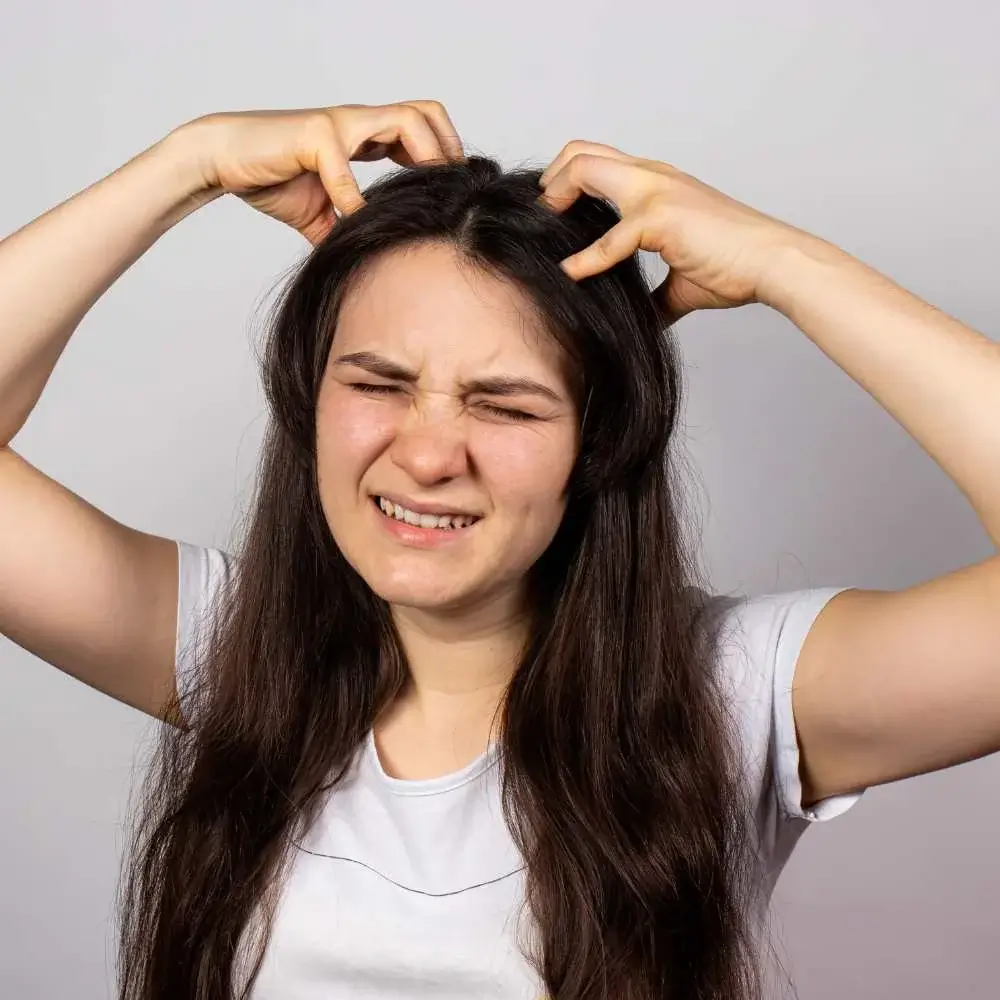
FAQs About Dandruff
How can I tell if I have dandruff or just a dry scalp?
Ah, the age-old conundrum: dandruff or dry scalp? Fear not, my flake-curious friends, for we have the answer! While both dandruff and dry scalp share the spotlight with their signature white flakes, there are subtle differences to help you solve this itchy mystery. Dandruff flakes tend to be larger, oilier, and often accompanied by redness and a persistent itch that just won't quit. On the other hand, a dry scalp's flakes are typically smaller, drier, and may be accompanied by a tight, uncomfortable scalp feeling. So, grab your magnifying glass and put on your detective hat – it's time to play "Spot the Flake" and determine which uninvited guest is crashing your scalp party!
Are there any effective home remedies for treating dandruff?
Oh, dandruff, you pesky party crasher! But fret not, my flake-fighting friends, for there are indeed some trusty home remedies to help you show dandruff the door. Let's dive into the treasure trove of DIY dandruff-busters, shall we? First up, we have tea tree oil – just a few drops mixed with your shampoo can work wonders on those stubborn flakes. Next, a classic: apple cider vinegar, which can be diluted with water and massaged onto your scalp to help balance pH levels and banish buildup. And don't forget the ever-so-versatile coconut oil! This all-star can moisturize your scalp while waving goodbye to dandruff-causing fungi. So, roll up your sleeves and get ready to tackle that uninvited guest with these effective, all-natural remedies!
How can I get rid of dandruff?
Banishing the flakey invaders known as dandruff from your hair kingdom doesn't have to be a boring chore! Picture yourself as the brave knight or the daring queen taking on an epic quest for a glorious, flake-free mane. The first step on your journey? Invest in a loyal squire in the form of an over-the-counter anti-dandruff shampoo. Arm these heroic shampoos with powerful ingredients like zinc pyrithione, selenium sulfide, or the swanky-sounding ketoconazole! Remember, consistency is key. Make sure to follow the bottle's directions – they're your roadmap to victory! Some scalps might need daily quests, while others only require a couple of battles per week. If your dandruff proves to be a dragon that won't be slain easily, call for reinforcements. A dermatologist can play the role of a mighty wizard, conjuring stronger potions or treatments to help you triumph. So, worry not, fellow dandruff warriors! With the right tools, strategy, and a little persistence, a flake-free kingdom awaits you. Onward to a dandruff-free future!
Is dandruff contagious?
No, it's not! That's right, those flaky little trespassers can't hitch a ride from one scalp to another, not even if they've booked first-class tickets. Dandruff is a little like a stubborn hermit, staying put on the scalp it calls home, whether it's welcome or not. It won't hop from head to head during a hug, a sleepover, or when you share hair brushes. So, you can keep sharing secrets, laughter, and fabulous hair flips with your besties, worry-free! Remember, just like a secret recipe or a quirky family tradition, dandruff is one of those things you simply can't pass on or catch. Now, isn't that a relief? Now go ahead, celebrate with a confetti shower... just make sure it's not made from dandruff flakes!
Can diet affect dandruff?
While no food plays the villain directly, a diet lacking in certain nutrients like zinc, B vitamins and some types of fats might roll out the red carpet for those flaky nuisances. Meanwhile, if your menu is bursting with sugary, processed or fermented foods, you might unknowingly be throwing a party to which dandruff RSVPs 'yes!' faster than you can say 'sugar rush'! So, in our culinary journey, it seems that while diet doesn't cast the leading role in the dandruff drama, it does have a cameo that could steal the scene if you're not careful. Happy mindful munching!
Is it normal to have dandruff with an itchy scalp?
Well, the answer lies in the very nature of our flaky frenemies. Dandruff's M.O. is causing your scalp to turn into a flake factory, which, let's be honest, gets annoying. So, the urge to scratch is your scalp's SOS signal, calling out for a little tender, loving care. Hence, yes, it is quite normal for that pesky dandruff to bring along an itchy entourage. However, if the itching feels like a non-stop dance party on your scalp, it might be a cue for you to seek a medical DJ, your dermatologist, who can change the tune to something less irritable! So, keep those head-scratching questions coming and say 'scratch that' to an itchy, flaky scalp!
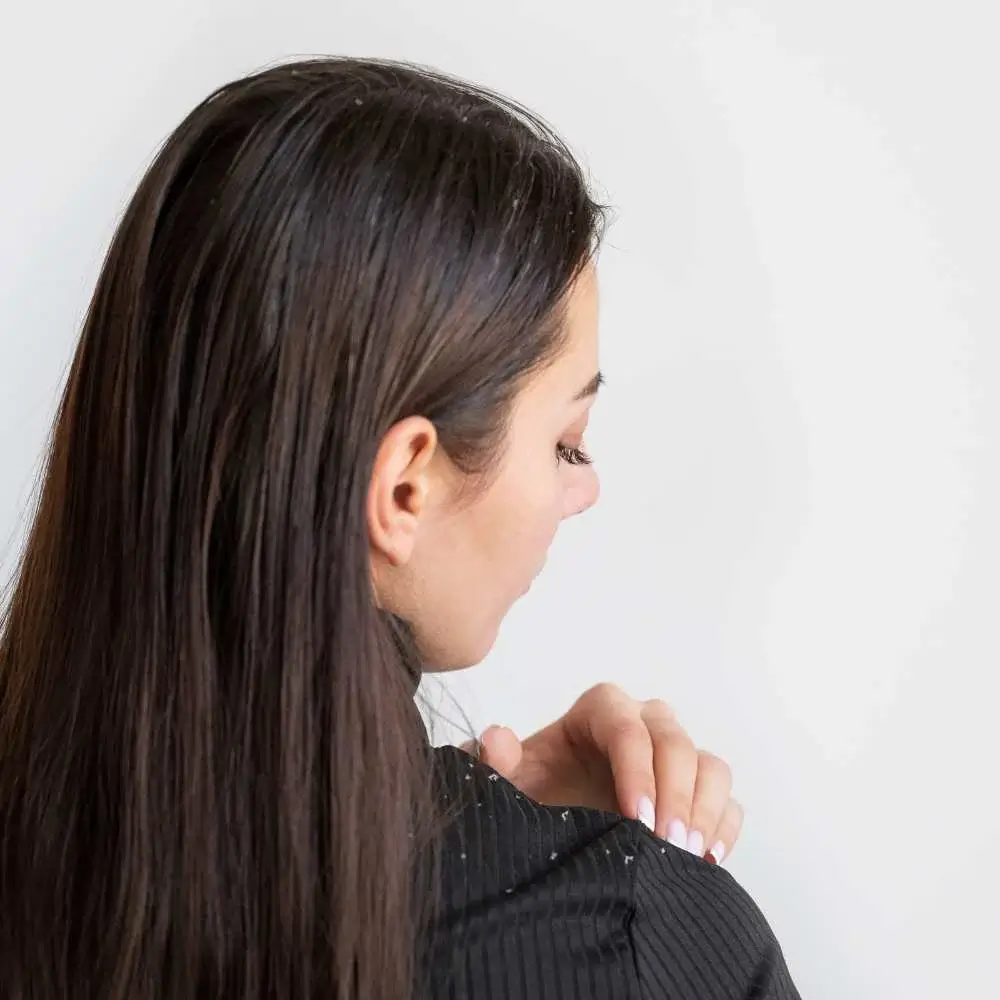
Oh, dandruff! That pesky, uninvited guest that loves to crash the party on our scalps. It's a common issue that affects countless people around the globe. While it's not typically a severe health problem, dandruff can be quite the confidence crusher and a stubborn foe to defeat. But fear not, fellow flake fighters! If you're on the hunt for the ultimate dandruff-busting shampoo, you've stumbled upon a treasure trove. We've scoured the world of hair care and cherry-picked the best options just for you. So, go ahead and click that link to discover the prices and reclaim your flake-free glory today!
Read our article about best cruelty free lipstick here!
Read our article about best deodorant for kids here!
Read our article about best red lipstick for olive skin here!







